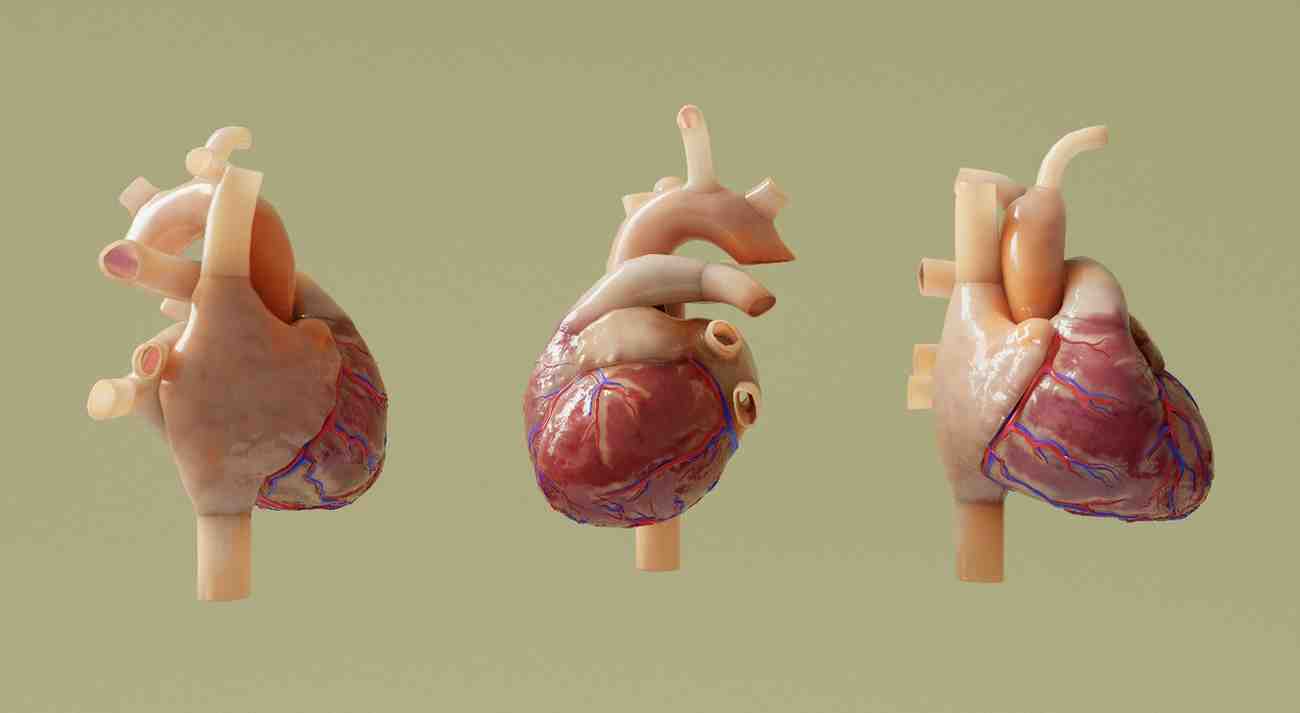Pregnancy, childbirth, and postpartum involve significant physical and mental changes in a woman's life, affecting her physically, mentally, and socially. Pregnancy typically lasts 40 weeks and is divided into three trimesters, each with specific developments important for a woman's health and well-being.
First trimester (weeks 0 to 13):
During this period, the main organ systems form in the fetus. Women often experience changes such as sickness, fatigue, and hormonal fluctuations.
Second trimester (weeks 14 to 26):
The fetus grows rapidly during this time, and the woman's abdomen increases in size. Sickness usually decreases, and women often feel better.
Third trimester (weeks 27 to 40):
The fetus completes its growth and preparation for birth. Women may experience abdominal pressure, leg swelling, and other discomforts.
During pregnancy, the fetus develops as the mother undergoes various physical changes. Labour has four stages, culminating in the expulsion of the placenta. The postpartum period starts after birth, allowing the body and mind to recover.
During pregnancy, the fetus develops as the mother undergoes various physical changes. Labour has four stages, culminating in the expulsion of the placenta. The postpartum period starts after birth, allowing the body and mind to recover.
Pregnancy is a physical condition where one or more fetuses grow inside a woman's womb over three trimesters. Physical and psychological hormonal changes during pregnancy can impact a woman's lifestyle and health.
Some common physical changes during pregnancy include:
👉 Hormonal changes: During pregnancy, the secretion of important hormones such as progesterone increases.
👉 Body growth: As the fetus grows, the woman's abdomen increases in size and various parts of the body undergo physical changes.
👉 Urinary tract problems: During pregnancy, the kidneys and urethra face increased pressure, which can cause urinary problems.
👉 Constipation and vomiting: Many women may experience constipation and vomiting during pregnancy, which is usually more common in the first and third trimesters.
👉 Some pregnancy complications:
Hypertension: High blood pressure or pregnancy poisoning can occur during pregnancy.
👉 Gestational diabetes: Insulin resistance increases during pregnancy, which can lead to diabetes.
👉 Anaemia: For Anaemia, the number of red blood cells decreases during pregnancy, which can cause anaemia.
Some common signs of labour:
Contractions: Contractions start regularly and, over time, become more intense and frequent, lasting approximately half a minute. Initially, they may occur every 10 to 30 minutes.
Pain: You may feel a cramping sensation and pain in the lower back and groin, which is caused by stretching of the muscles and joints.
Cervical changes: The cervix begins to soften, shorten, and thin, which is called effacement.
Light contractions: Braxton Hicks contractions, which come and go in preparation for labour, may be felt.
Vaginal discharge: There may be vaginal discharge mixed with blood or mucus.
Pain: You may feel a cramping sensation and pain in the lower back and groin, which is caused by stretching of the muscles and joints.
Cervical changes: The cervix begins to soften, shorten, and thin, which is called effacement.
Light contractions: Braxton Hicks contractions, which come and go in preparation for labour, may be felt.
Vaginal discharge: There may be vaginal discharge mixed with blood or mucus.
👉 Labor is the process of giving birth to a baby. It is generally divided into three stages.
Type 1: In the first stage, the uterus begins to contract, causing the cervix to become smaller and the birth canal to dilate. This can usually take several hours.
2 Labour: In the second stage, the baby's entire body comes out through the birth canal.
3 Placental stage: In the third stage, the placenta or organs in the uterus are delivered after the baby is born.
👉 Complications of labour:
1 Abnormal labour: For example, prolonged labour, physical complications during labour, or the baby's position is not correct.
2 Maternal haemorrhage: Excessive bleeding after childbirth, which can be dangerous for the mother and the baby.
3 Contraception: Due to improper treatment during childbirth, abnormal fistulas can form between the uterus, urethra, or anus.
Postpartum period: The postpartum period refers to the time immediately following childbirth, typically lasting six months or less. During this time, the mother undergoes recovery and returns to her normal physical state. Several important changes occur in a woman's body during this period.
- Hormonal changes: After delivery, hormone levels such as progesterone and estrogen begin to decrease rapidly, and when breastfeeding begins, the secretion of prolactin increases.
- Physical recovery: After delivery, the uterus returns to its normal size and is usually fully recovered within six months.
Postpartum complications:
- Depression: Some women may experience depression after delivery, which can affect their daily lives.
- Infection: If hygiene is not good after delivery, infection can occur in the uterus or perineum.
- Blood pressure problems: Some women may experience high or low blood pressure after delivery, which is important for the recovery process.
Pregnancy, childbirth and postpartum care:
👉 During pregnancy, Regularly consult a doctor, eat a balanced diet, etc.
👉 After delivery, Give birth under the supervision of a trained health worker.
👉 In the postpartum period, Get enough rest, eat a balanced diet, breastfeed your baby, take medicine as advised by your doctor, etc.
To know more about pregnancy, childbirth and postpartum care:
👉 You can consult a gynaecologist to know more about pregnancy, childbirth and postpartum care.
Remember that pregnancy, childbirth and postpartum care are extremely important periods in a woman's life. It is essential to maintain our healthy lifestyle and follow your doctor's advice regularly during this period.
Pregnancy, childbirth, and postpartum care are important times for a woman's health and well-being. Physical, mental, and social changes occur, and medical support can help maintain health by addressing challenges such as premature birth, nutrition deficiencies, diabetes, hypertension, miscarriage, infections, postpartum depression, bleeding, and hypertensive disorders.
- Premature birth.
- Vitamin and mineral deficiency during pregnancy.
- Diabetes during pregnancy.
- High blood pressure during pregnancy.
- Miscarriage.
- Infection during childbirth.
- Postpartum depression.
- Bleeding after childbirth.
- Preeclampsia.
- Eclampsia.
1. Premature birth:
Black cumin and honey. Taking black cumin and honey during pregnancy helps to strengthen the uterus.
Proper rest. The Hadith emphasises the importance of adequate rest for pregnant women.
Peace of mind: Prayer and supplication reduce the risk of premature birth by eliminating mental stress.
👉 Vitamin and mineral deficiency during pregnancy: Dates Dates are a nutritious food for pregnant women that provide iron and essential minerals.
Olive oil. The hadith recommends the use of olive oil, which is a source of vitamin E.
Olive oil. The hadith recommends the use of olive oil, which is a source of vitamin E.
👉 Diabetes during pregnancy: Black cumin helps in controlling blood sugar. A balanced diet includes natural foods such as dates, vegetables and protein-rich foods.
Exercise improves blood circulation through light exercise and walking.
👉 High blood pressure during pregnancy: Prayer and Ruqaiya to bring mental peace and reduce anxiety. Drinking enough water and mixed drinks with black cumin is helpful in reducing blood pressure.
Dates are beneficial in helping to control blood pressure and providing energy.
👉 Abortion: Increase intestinal strength: Gain mental strength through trust in Allah and prayer. Consume natural ingredients such as dates, honey and black cumin.
👉 Use olive oil as a natural antiseptic to help prevent postpartum infections. Black cumin is effective in preventing infections. Cleanliness: The importance of cleanliness is emphasised in the Hadith.
👉 Postpartum depression:
Worship and spiritual peace. Prayer and prayer to reduce mental stress. Food is very nutritious; dates and honey are helpful in bringing mental peace. Family support. The importance of family and community support is mentioned in the Hadith.
👉 Postpartum Bleeding:
Dates are very beneficial in reducing postpartum bleeding. Water and honey help maintain blood pressure and reduce bleeding.
👉 : Pre-eclampsia Drink enough water and eat light meals. Black cumin helps in controlling blood pressure.
👉 : Eclampsia Prayers and supplications to relieve mental stress.


1 Comments
Nazir Ahmed Shamim
Health awerness is most important to live healthy, happy, pleasant and peaceful life. We are the prime creature of nature so must follow the process and rules of nature. We will try our best. Please stay with us.leave your valuable comment and advice.
Reply